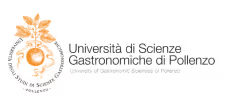From the “Best Practices of Circular Economy” section of Www.icesp.it
(ICESP: Italian Circular Economy Stakeholder Platform)
Description
Photovoltaic: technologies based on materials of organic origin are arousing increasing interest; the most promising are the “Dye Sensitized Solar Cells” (DSSC), based on natural dyes. Blueberries, currants, eggplants are some of the plant foods already in use from which the dye is obtained: all raw materials, therefore, and edible. The innovative method of the invention, on the other hand, recovers a waste that is otherwise disposed of, the so-called 'scum' resulting from the clarification of wines, valuing it as a 'green' resource to extract the organic dye needed by DSSC.
Results
Agri-food waste is used to create photovoltaic cells that produce renewable and sustainable electricity: natural dyes are extracted from the residues derived from vinification (normally disposed of by companies) that capture solar energy. The patented method therefore recovers production waste that is transformed into a “green” resource.
Replicability conditions
Given the high quantity of vinification lees and waste from the vinification chain of wineries, this method of extracting the dye could be widely used by these companies, transforming an agro-food waste (which must in any case be disposed of) into a “green” resource for the production of renewable and sustainable electricity.






